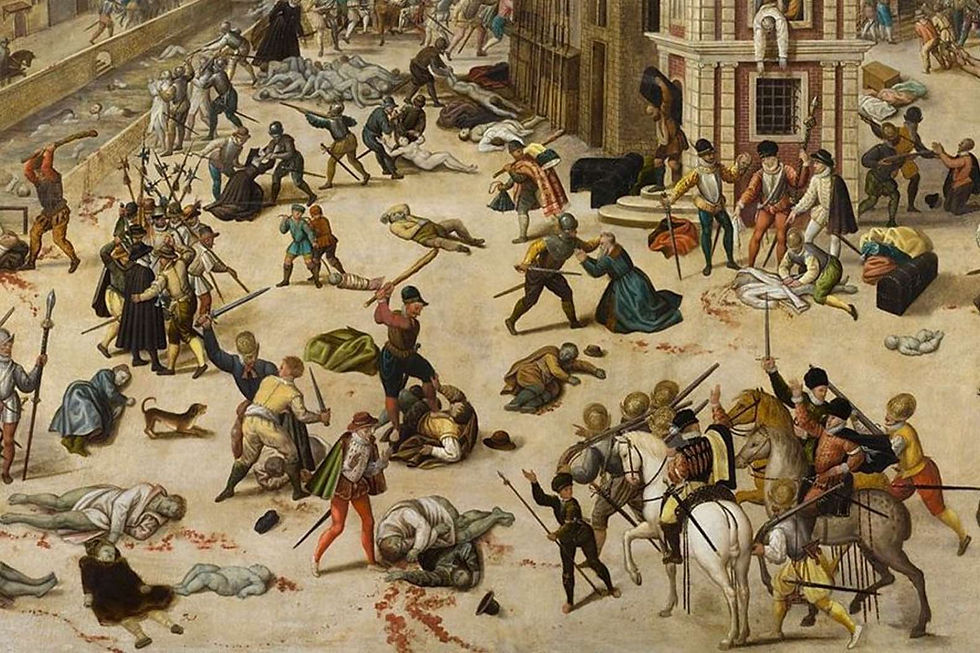Some Thoughts on Religion and Violence
- Alex Sun

- Apr 20, 2020
- 2 min read

Although almost all of the mainstream religions teach people the principles of love and harmony, there’s no doubt that there are a plethora of violent acts and warfare caused by religious reasons. In fact, if you search “religious violence” on Google, there is a Wikipedia entry created for it. Charles Selengut, a professor from County College of Morris and a religious author, characterizes the phrase “religion and violence” as jarring, asserting that “religion is thought to be opposed to violence and a force for peace and reconciliation. He acknowledges, however, that “the history and scriptures of the world’s religions tell stories of violence and war even as they of peace and love.”
From my perspective, the root cause for religion so frequently being tied up with violence is that it’s very hard to reconcile people’s thoughts. People’s religious ideas are fragmented, loosely connected, and context-dependent just like in all other domains of culture and life. People believe that it’s their religions that offer the most accurate and closet interpretation of God. There are countless conflicts caused by people’s different beliefs in the history. For example, in ancient China, the debates over which one of Taoism, Buddhism, and Confucianism is the predominant religion has never ceased. Disciples of one religion are not convinced by the preaching of another, and numerous conflicts were begotten.
Just like terrorism expert Martha Crenshaw suggests, “Religion is just a mask used by political movements to draw support.” In many instances of political violence, religion tends to play a central role. Religion can be the tool exploited by so many potentates because it’s evident that religion can be very “seditious”. The meaning of seditious here is by no means negative. It only indicates that religion can be very persuasive and push people to devote themselves to something greater. Constantine the Great is known be a pagan in much of his whole life. However, he joined the Christian faith on his deathbed, being baptised by Eusebius of Nicomedia. The reason his doing that was because he noticed the growing trend of Christianity inside Roman Empire, and he knows the severe consequences of a nation being divided by two mainstream religions. Constantine the Great smartly shifted to be a Christian for the sake of the harmony and peace of his empire.
Conflicts and violence caused by people’s different beliefs do not only happen among different religions, they can also happen within the same religion. For example, Lord Calvin had Michael Servetus burned alive because he held different thoughts on Christianity. Furthermore, the dissension between Lutheranism and Roman Catholic Church caused many large-scale and long-lasting violence acts.
Just like Sebastian Castellio wrote in his “Reply to Calvin”, conscience of a person cannot be forced but is certainly teachable. A religion charged with bringing God’s truth to the world faces the question of how to peacefully deal with people who refuse to accept it.




Comments